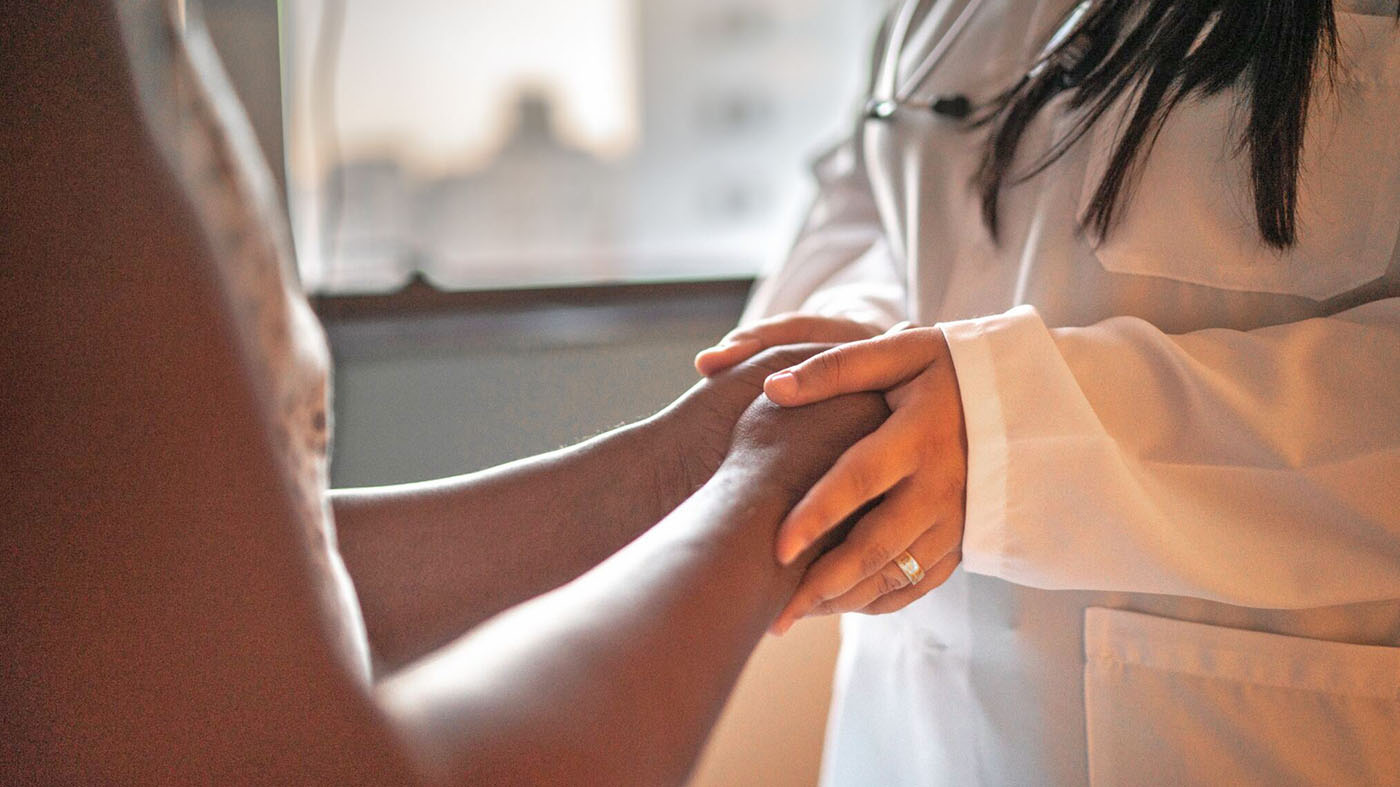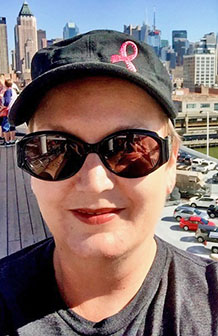Every journey begins with a story and, in this case, it’s the inspiring journey of Cassie Garrett, who was diagnosed with breast cancer after her military service. By sharing her story, Garrett hopes to inspire her fellow Veterans to have conversations with their health care providers about the importance of cancer screening, and the incredible cancer services and support VA has to offer.
Enlisting at just 17, Garrett served in the Air Force, followed by the Air Force Reserve and then the Army. She worked as an F15 mechanic in the Air Force during her tour of duty in Saudi Arabia in 1991, just before the Gulf War. In the Army, she served as an Arabic linguist.
Choosing VA for cancer care
When faced with a breast cancer diagnosis in 2013, Garrett turned to VA for her care. Her decision was driven by a deep connection to VA and the trust she had built over the years. A pivotal moment came when she discovered an unusual texture in her breast during a self-exam and immediately informed her VA health care team.
Though previous mammograms showed no cause for concern, some breast cancers can be aggressive and grow quickly, which is why self-breast exams and self-breast awareness in between mammograms is so important.
VA’s response was swift, instructing her to come in immediately. Within one day, her diagnosis was confirmed. Subsequent treatments involved coordinating with Cape Fear VA and Womack Army Medical Center at Fort Bragg. Although she lived in a rural area of North Carolina, VA worked with DoD to provide the best care as close to her as possible.
In 2020, Garrett moved closer to Durham VA and VA made it easy to switch her care and still provide the expertise she needed.
One key element that stands out about Garrett’s cancer care journey was the support she received from her VA providers. When issues arose with her medication, her VA physician stepped in to help and is now her regular primary care provider. Garrett also shared that her oncology provider is an “expert in breast cancer. She is communicative and caring.”
Promoting self-advocacy
Reflecting on her journey, she emphasized the importance of self-advocacy. “Being your own advocate is so important, especially if you notice any change,” Garrett said.
Garrett’s message to fellow Veterans is clear: Self-advocacy and regular exams are vital. She encourages everyone to be proactive about their health. When it comes to VA’s oncology care, she feels genuinely cared for, especially regarding her breast cancer treatment. A recent clear CT scan is a testament to the care she has received.
Breast cancer support and resources available through VA include:
- Breast cancer screening (including mammograms, ultrasounds, and MRI)
- Breast biopsy and surgery
- Cancer diagnosis and treatment
- Full-service oncology (the study and treatment of tumors)
- Connection to clinical trials
- Mental health care
Veterans are strongly encouraged to talk to their VA provider about the need for different cancer screenings and what screening options are available.
To learn more about how VA works to expand access and reduce barriers to cancer care at VA, visit cancer.va.gov.
Visit My HealtheVet to learn tips and tools to help you partner with your health care team, so together, you may work to manage your health.
Topics in this story
More Stories
As severe weather threatened Mississippi, local news warned of a dangerous outbreak of tornadoes. A VA nurse stepped up.
Dorothy “Pat” Rudd, 103, World War II Navy Veteran, has lived a life of service, pioneering the way for women in the military.
VA employees help return WWII items to two brothers’ families. Both brothers were WWII Veterans.







I too was diagnosed with breast cancer, although my path was just a little different. My cancer only showed up as calcifications. They monitored the calcifications for years until I finally decided I did not want to come in for a mammogram every 6 months. They did a biopsy and found I had DCIS & LCIS in both breasts in all four quadrants of the breast. I had a double mastectomy with nipple removal and 25 rounds of radiation. Now, I have had 5 surgeries and more to come. I did not want implants, so my plastic surgeon is moving my own tissue around to make breasts. I have to self advocate now because my husband passed away just before diagnosis. If you have calcifications please get a biopsy. Navy Veteran 8 years service.